When calculating how old your horse is, there are many factors to take care of. For instance, the horse size, genetics, health, and how well you take care of it will significantly affect the aging process.
Most horse lovers know that horses age faster than humans, but not everyone is familiar with the calculation method used to determine a horse’s age compared to humans. There are no exact horse years to human years chart that you can use to convert them accurately. Let’s find out the correct way to do that.
Horse Years Compared with Human Years
You should be aware that there is no universal definition for calculating horse years to human years. The fact is that horses and humans age in different ways, which implies equine years are very different from humans’.
Plus, estimated calculations don’t include horse condition or other traits that impact its price. Even though you can find online calculators you can use, you should treat all available calculations as fun.
Horse Age in Human Years
An estimate calculation shows you that nearly three human years are the same as a single horse year. However, that is not always the case, although horses practically live three times shorter than humans.
A grown-up equine is generally identical to a human age of 21 years of age. On the other hand, a pony old around 13 to 14 years can correspond to approximately seven or eight years old in human years.
Horse years to human years chart |
|||
| Human age | Stage of life | Horse age | Stage of life |
| 0 to 12 months | Infant | 0 to 6 months | Foal |
| 1 to 3 years | Toddler | 7 to 9 months | Weanling |
| 3 to 9 years | Preschooler and schooler | 10 to 12 months | Yearling |
| 10 to 13 years | 2 years | Adolescent | |
| 13 to 18 years | Teenager | 3 years | |
| Up to 20.5 years | Young adult | 4 years | |
| 21 to 24.5 years | Adult | 5 to 6 years | Physical maturity |
| 28 to 35.5 years | 7 to 10 years | ||
| 36 to 43.5 | Middle-aged | 11 to 13 years | Middle-aged |
| 53 years | 17 years | ||
| 60 years | Senior | 20 years | Senior |
| 70.5 years | 24 years | ||
| 78 years | 27 years | An average lifespan | |
| 85.5 years | Elderly | 30 years | Extreme old age |
| 93 years | 33 years | ||
| 100.5 years | 36 years | ||
The tricky part is that horses’ and ponies’ ages are not based on their birth year. In this case, you need to consider the year these noble animals reach an adult stage of their life.
To know the number of horse or pony years compared to yours, you only need to consider its life expectancy.
Now, let’s see the aging difference between horses and humans to the extent that it is possible to compare it. For a start, you should be aware that various things affect the life expectancy of both.
Horses and humans years’ comparison
Even when humans and animals reach their entire lifespan, they will age at very different speeds and rates. As a result, an equine year is much different than human years and directly depends on the horse’s life stage.
Although many experts have tried to do calculations, it is actually impossible to find precise converters. It can be unclear for equestrians since you can accurately compare human age with cats’ and dogs’ years.
With horses, it is not that simple. Everything is clear while horses are up to three years old since one horse year equals 6.5 human years.
For instance, you can see that one year on foals’ age corresponds to a child of 6.5 years. In the same way, yearlings are equivalent to a 13 years old child.
However, 10-year-old horses are not equivalent to humans in their 60s. Even though the horse’s aging rate slows down after that period, it is still faster than the human’s aging rate. Once the horse reaches the age of three, you can say that its year is approximately equal to 2.5 human years.
In other words, a five-year-old horse is roughly equivalent to a 23 years old human, and this aging rate keeps maintaining for the rest of this animal’s life. This explanation can help you convert horse years to humans roughly.
Horses become seniors once they turn 17 years old. So, you can compare a 17-year-old horse with a 53-year-old human, while a 26-year-old horse is equivalent to 78-year-old humans. Like in humans, who are extremely old with 85, the horse age of 32 is considered extremely high.
Different mature rate
Remember that it is crucial not to take this chart too literally. Like every human being, horses grow and mature at a different rate, considering many other factors that can affect the growth rate.
For example, different horse breeds will live much longer or much shorter than the average life expectancy for this species. Taking proper care of the horse’s health will help it live a longer and healthier life. However, that will probably complicate the calculation even more.
Horse Life Stages
Horses have different life stages as humans do. You can divide a horse’s lifetime into three primary phases.
Youth / adolescence
The universal name for every baby horse is a foal, while the one-year-old animal is a yearling. Additionally, you can use two different terms according to the horse’s gender after it turns one year. One to four-year-old female horses are fillies, and male horses are colts.
Most owners geld male horses after the first six months of their life. Gelding (castration) will usually result in horses that are easier to train and handle.
On the other hand, you should wait with castration until the breeding period if the particular animal has an excellent breeding potential.
Interestingly, gelded males will sometimes grow taller than intact stallions because their growth hormone stays active for a more extended period.
Once a female horse turns four years of age, it will become a mare, while a male horse becomes a stallion.
Adulthood
Most people believe that horses get fully grown-up when they turn five years old. However, warmblood breeds will typically spend one more year in the youth stage of life.
For some reason, these breeds mature slower. The beginning of adulthood is ideal for riding horses and participating in races or shows.
Seniors
Most horses have an average lifespan of 25 to 30 years. In such a case, it is considered a senior as soon as it reaches the age of 17. You can see numerous indicators that your horse has come to the old stage of life, such as:
- The horse’s back is not that strong as it used to be since it begins to lose the most significant part of its muscles
- The skin around the eyes become fat over time while the lower lip drops down
- An old horse starts losing its teeth, and its coat changes color to gray, particularly around its eyes and snout
Factors Affecting Aging in Horses
As you already know, horses typically live around 25 to 30 years on average. They become adults when reaching the age of five and live 20 more years after that stage.
Remember that breed, diet, genetics, predisposition to certain diseases, and environment have the most substantial impact on your animal’s lifespan. You also need to understand your horse’s life stage to determine the type of care it needs.
According to experts, the most significant impact on the horse’s lifespan and the quality of its aging depends on the breed. For example, Arabian horses have a longer lifespan than other horses in general, and they age much slower than other breeds.
Regular health care, dental care, vaccinations, shoeing, and high-quality nutrition will significantly affect the horse’s aging. The last factor you need to take care of is your horse’s work experience. If you use it as a working horse for a more extended period, it will age faster.
In short, recommendations you should follow to increase your horse life expectancy include:
- Provide high-quality hay and grass for your horse to keep it healthy
- Provide regular vet and farrier visits
- Take your animal to the vet as soon as you notice any health issue, and in case of emergency
- Clean your horse’s stall and outside shelters regularly
- Keep the stable properly ventilated and with enough lighting
- Provide daily exercise for your horse to keep it healthy and fit
- Ride a horse at least three to five times a week
- Clean and bathe the animal when needed
- Call a groomer to take care of your horse’s hair, mane, and tail
- Pay particular attention to your horse’s teeth and hooves
Summary
It is impossible to compare horse and human years precisely because of the different lifespans since too many factors affect them. Nowadays, you can find numerous online calculators you can use for that purpose.
Unfortunately, none of them can give you precise information, but you can always enjoy calculating for fun. If you grow up with your horse, comparing how much older your horse is than you can be pretty interesting.
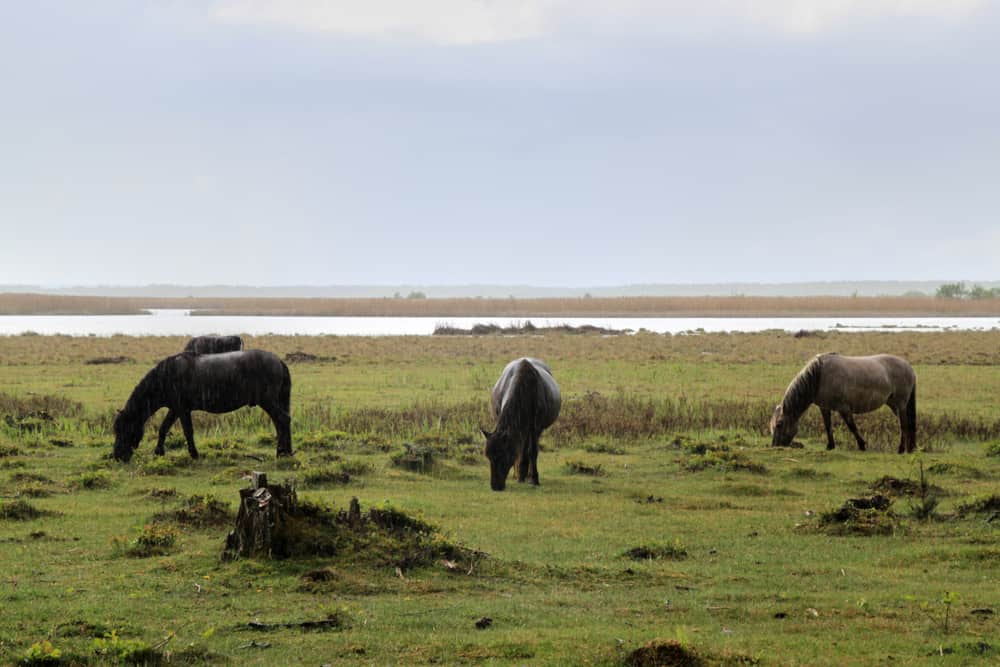
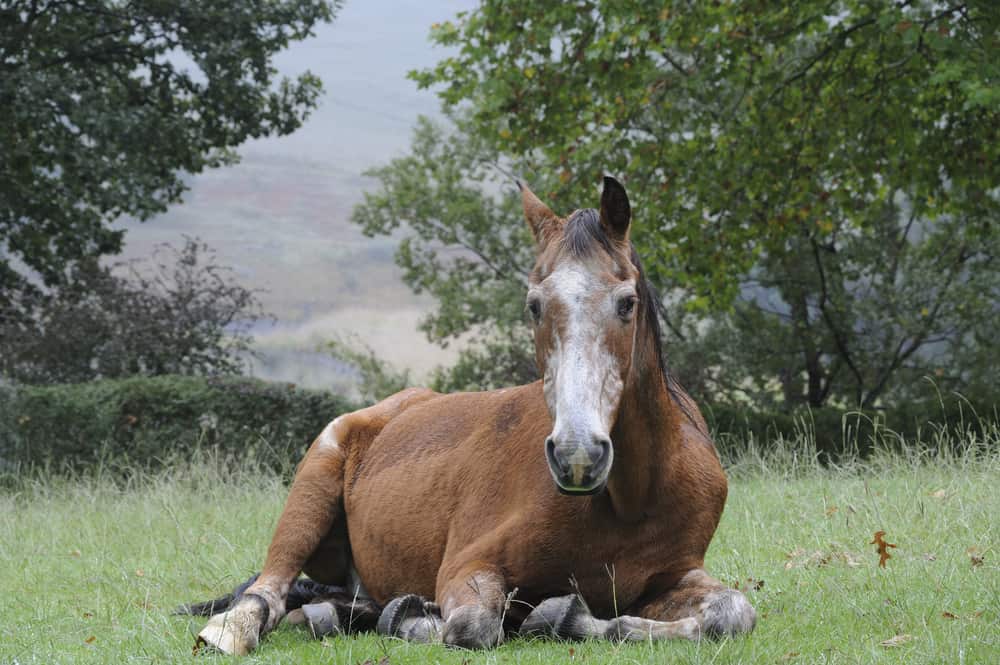
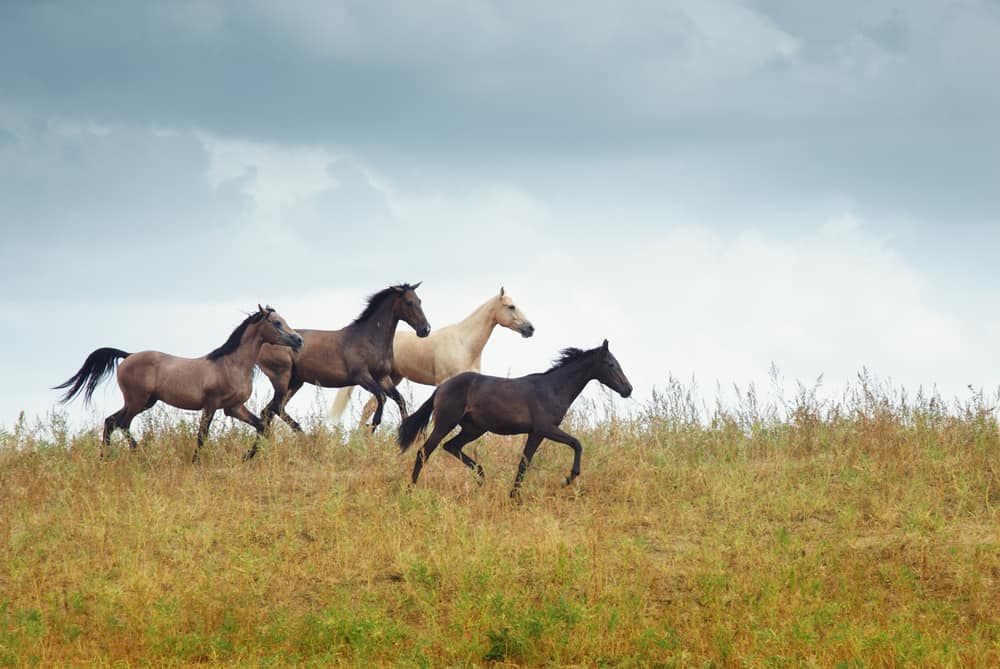
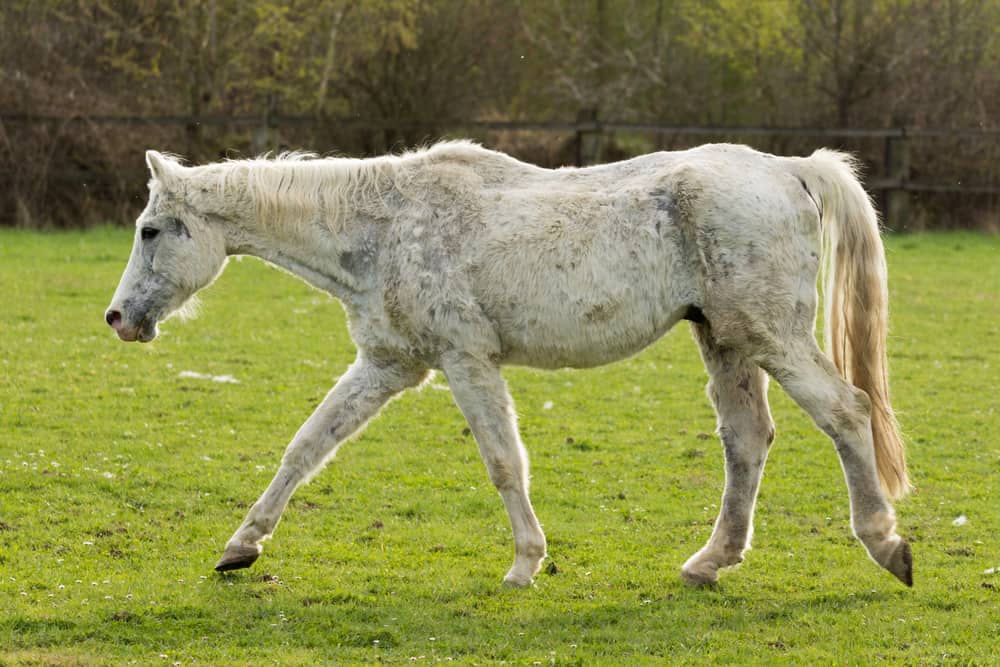
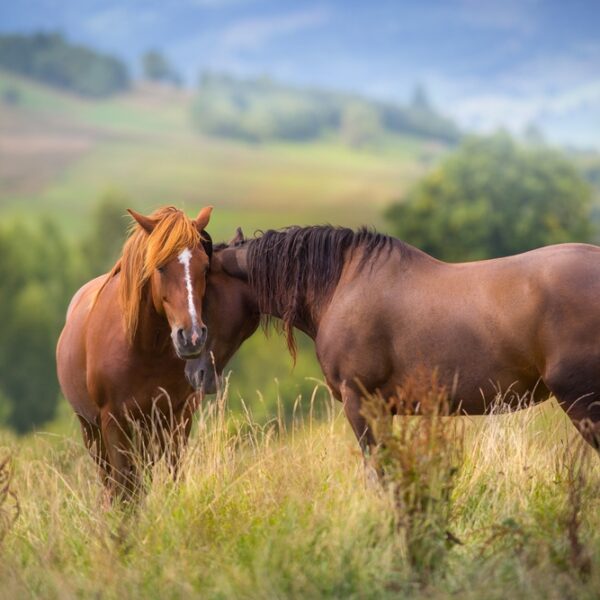
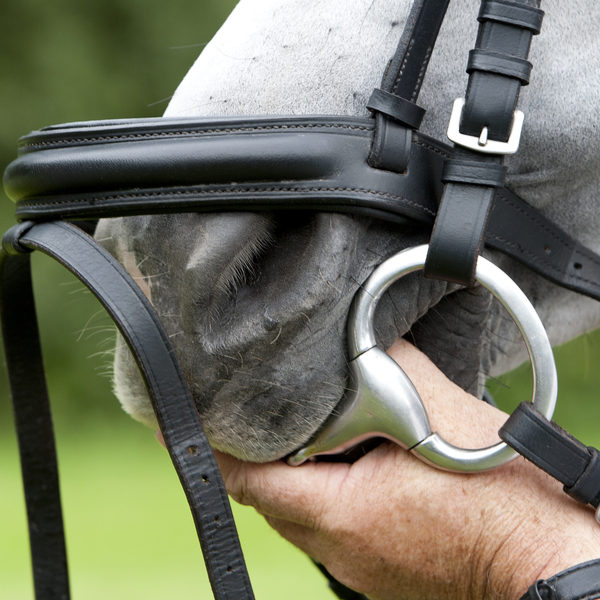
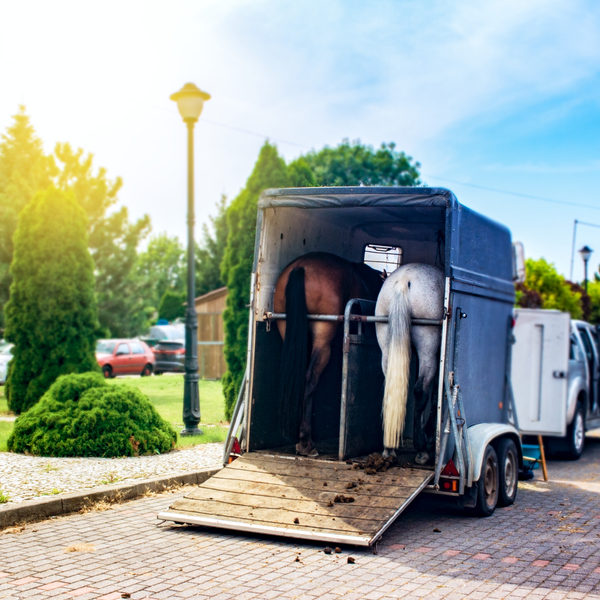
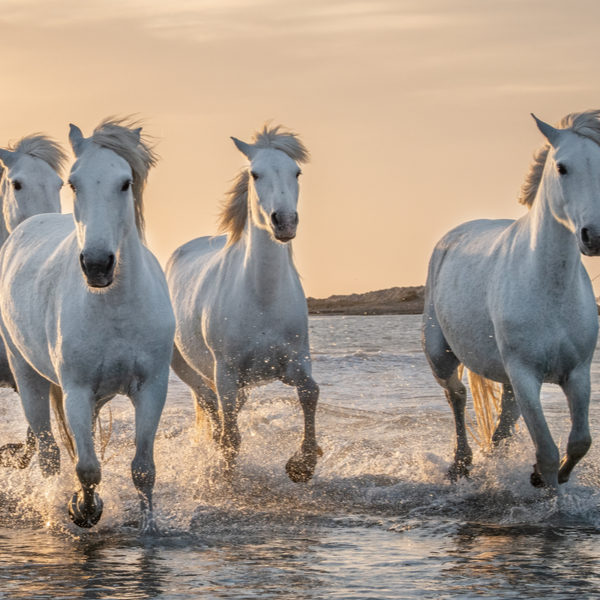
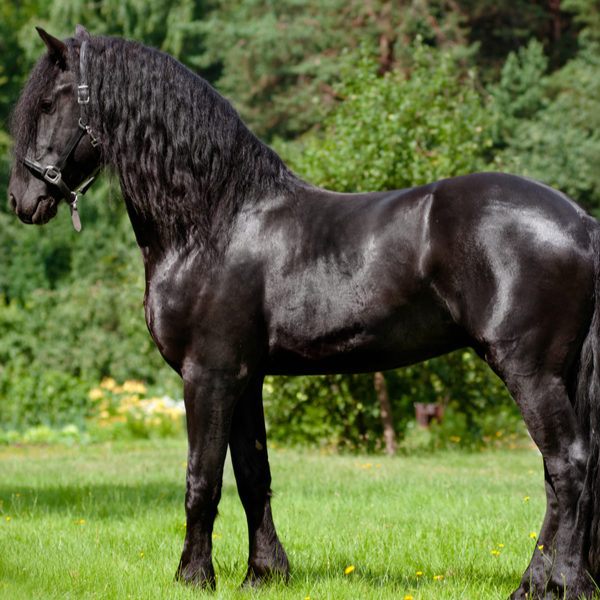
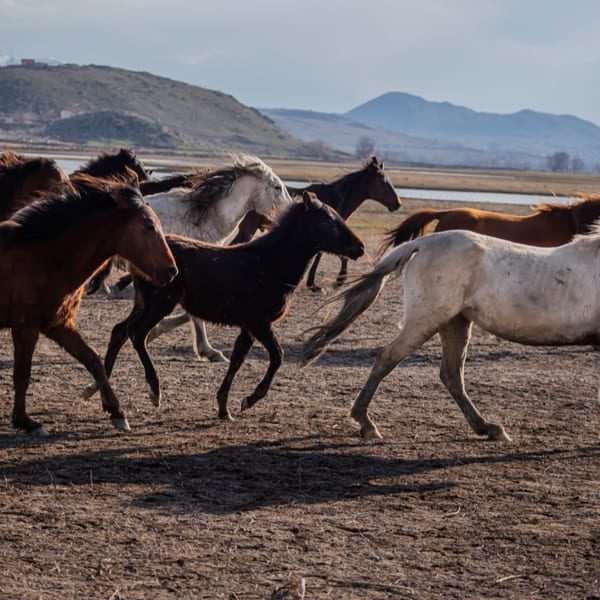
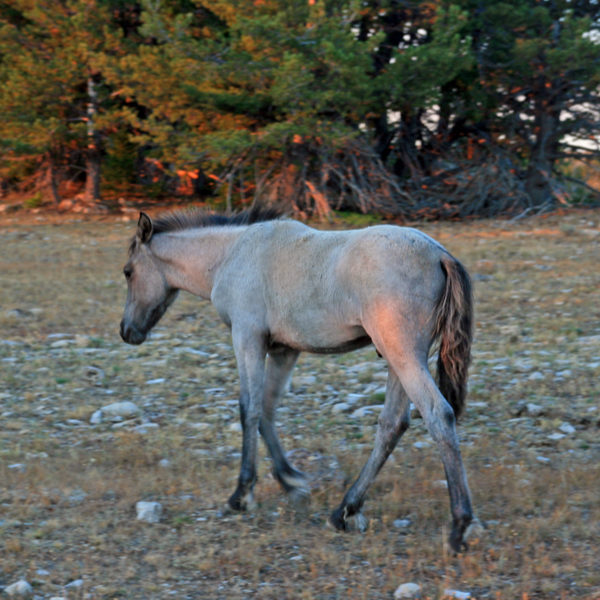
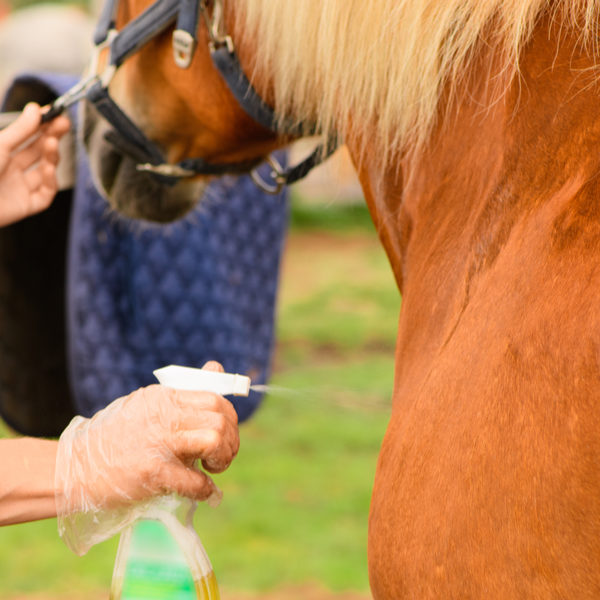
I have a horse I’ve had since he was 4 months old. He was gelded at 11 moths old. I don’t believe in altering ANY animal early in life because for proper health and organ development they need those hormones to grow well as nature intended. My horse has NEVER had any form of sugar and has never been sick. He was not trained until 8 years old and was so smart the trainer over taught him too fast ( 3 new things a day) that he learned so fast she just kept adding new things until she wanted him to canter – then he threw her off – and the weather did not cooperate so he only had 3 weeks of training and has not been ridden since. He is 20 years old but thinks he’s 4. He acts like a young horse, Has no markings of age. The only white hair spots on his head is where he scratches on posts. His size is 15.1. HIs father was a registered Quarter Horse so gentle, young kids handled and rode him. His mother was never able to be trained if they even tried to – but she was a combo of Pinto, Appaloosa and Arabian = all hot horses. He has teh markings on one side of ALL three of these breeds and on the other side he’s totally Quarter horse with no markings. His best feature I think is his perfect 4 white hocks. His head is Arabian. His main personality is like his fathers. He gets very attached to his human family. NOw that I’m 78 I’d like to find him a FOREVER home with a couple who are gentle and knows how to take care of and handle horses. If someone is gentle with him he will do anything for you. He thinks he’s human. He’s been an only horse al his life and he likes it that way. Other horses he’s been put with attack him and it’s made him fearful of being in with other horses, however he likes to see them and talk to them if he’s in his own pasture. He talks to the horses across the road from me. He also obeys my hand/arm signs and commands. He likes to be treated like a human and be talked to and watch you work in your yard – you are company for him. I’ve spoiled him I guess you can say. He’s been treated like my child. He only had his shots for the first 8 years and i’ve not allowed any since, since it’s bad for all animals to be so over- injected (“vaccinated”) Over vaccinating is one of the worst things to do to any animal as it tears down their joins, bones and organs after just so many shots. It ages them fast. And “vaccines” don’t work as you are told they do anyway. This boy is 20 but acts like he’s still a 4 year old kid. Lots of spunk and energy. And he’s always only been on private well water – I’ve never allowed him on any kind of public water. Stick to Nature and you get a healthy child, pet or anything living. I’ve never used anything chemical on my property. Stay away from chemical anything for your pets , your kids and yourself. .I’ve never been to a doctor or a hospital (except for the birth of all my sons) or used any Big Pharma meds. And I’m 78.
I live in Mulberry, Fla.
===